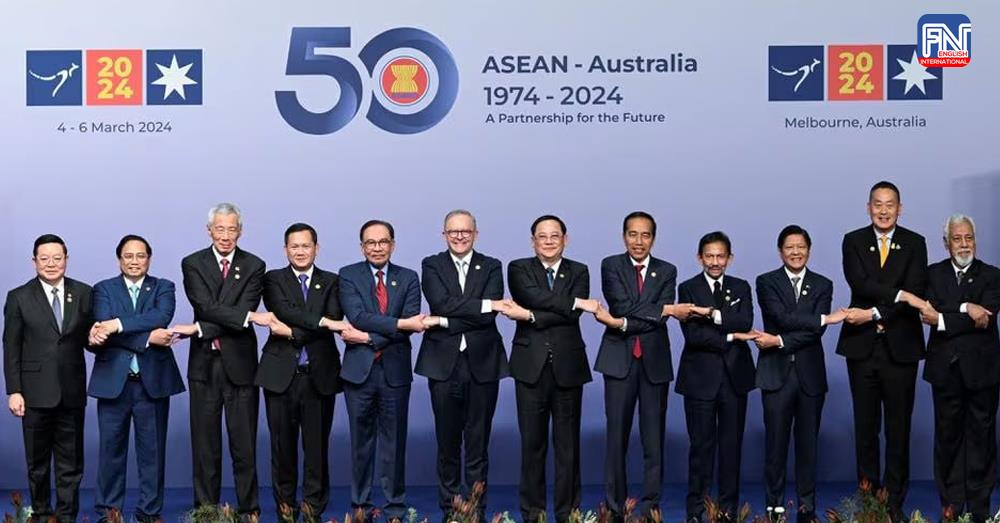MELBOURNE, Mar. 6 (Reuters) - Australia's Prime Minister Anthony Albanese said on Wednesday that maritime security, trade and clean energy will shape the country's future with the ASEAN bloc as Beijing looks to increase its presence in the contested South China Sea.
Australia is hosting the ASEAN summit in Melbourne, which marks the 50th anniversary of its ties to ASEAN even as differences remained across the 10-member bloc on China's plans to extend diplomatic and military presence in the region.
"Australia commits to working with you to make sure the principles of sovereignty, territorial integrity, equality, and independence are upheld," Albanese said in his speech at the three-day summit which will conclude later on Wednesday.
"To ensure our region is secure, resilient, open, inclusive, and prosperous," he said.
Albanese said both Australia and the Association of Southeast Asian Countries (ASEAN) must work together to turn their natural connection into a more practical cooperation on marine sustainability and security.
The comments come as the Philippines on Tuesday summoned China's deputy chief of mission in Manila to protest at what it called "aggressive actions" by Chinese naval forces against a resupply mission for Filipino troops stationed on a South China Sea shoal.
Beijing claims almost the entire South China Sea, a conduit for more than $3 trillion worth of ship-borne commerce each year, and is a major source of tension with the Philippines.
Both countries have been locked in a territorial dispute despite a 2016 ruling by the Permanent Court of Arbitration which found that China's claims had no legal basis. Beijing rejects that ruling.
Malaysian Prime Minister Anwar Ibrahim, during a press conference with Albanese on Monday, said there was a growing "China-phobia" in the West.
In an interview published on Tuesday in the Sydney Morning Herald newspaper, Anwar claimed the risk of conflict in the South China Sea had been exaggerated.
The summit is expected to release a joint declaration later on Wednesday that would outline ASEAN's position on the Israel-Gaza war and Russia's invasion of Ukraine, media reported.
